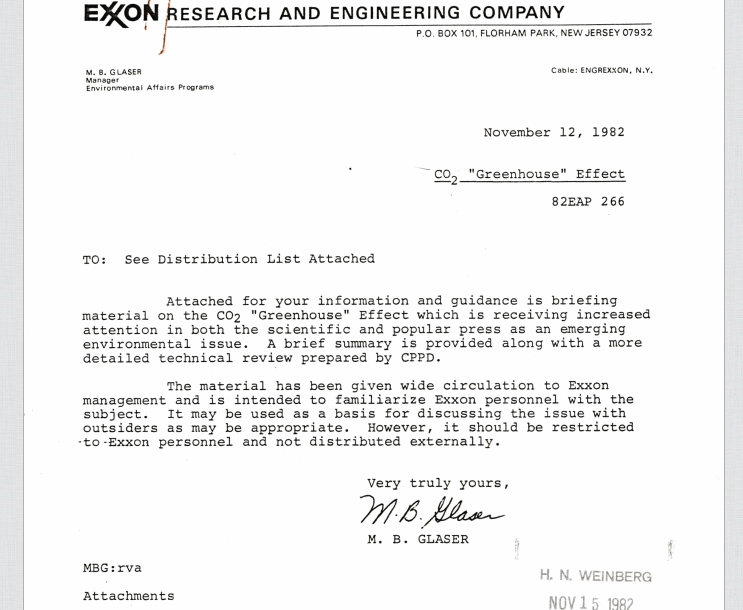Climate Change Denial Is Hardwired into the System

Ever since there has been climate change science, there has been climate change denial. As far back as 1982, an internal scientific assessment from US energy giant ExxonMobil warned of the “greenhouse effect” produced by burning fossil fuels.
Exxon’s scientists predicted global temperature rises and ever-increasing atmospheric carbon dioxide levels — this month CO2 levels hit 415 parts per million for the first time in human history, precisely as predicted. The company buried the report then spent millions of dollars over several years sowing public disinformation about climate change.
Exxon’s behaviour is symptomatic of a far wider campaign of climate misinformation — one that is hard-wired into the system and which is metastasising through social media.
Even at United Nations climate talks, organisations representing oil and gas majors are given a seat at the table, and the UN’s framework convention on climate change contains no conflict-of-interest protection.
US President Donald Trump, himself a long-term climate change skeptic, has signalled his intent to pull America out of the 2015 Paris accord, and his erroneous view of scientific reality has a marked effect on the public.
On January 28 this year, Trump tweeted that “we need” global warming following a marked cold snap in the mid-West. This coincided with a global and US-wide peak of people searching for the term “global warming” on Google.
In March, Trump wrongly attributed the climate-skeptical view of a nuclear lobbyist interviewed on FOX to Greenpeace, exactly as Google registered a spike in the number of Americans researching the term “climate change”.
This deception from the president informs public recognition and discussion of climate change online. Misinformation comes in two forms: individual users who tend to knowingly or unknowingly misinterpret scientific data to suit their standpoint, and bots.
One study by Brown University, conducted last year, found that as much as 20 percent of all tweets containing the phrases “global warming” or “climate change” were generated by bots. CBC News this year analysed 9 million tweets concerning or mentioning Canada and found that a significant proportion of climate-related tweets were either produced or retweeted by bots. The most active day for bot-generated tweets was January 24, 2017 — the same day that Trump greenlit the Keystone XL and Dakota Access Pipelines.
In Europe, a growing civil disobedience movement demanding world governments accelerate emissions cuts has attracted vitriol both from within elements of the media and the far-right.
Most of this has been reserved for Greta Thunberg, the 16-year-old school girl behind the ongoing international schools strike for climate.
A recent investigation by Greenpeace and the German Institute of Strategic Dialogue showed a surge in climate-related Facebook posts from the far-right Alternative for Deutschland (AfD) party. Thunberg was mentioned in 384 posts in March 2019 alone.
This is a good example of how social media and vested industry interests coincide in climate denial: The AfD is supported by the EIKE – European Institute for Climate and Energy – a think tank affiliated with the denialist Heartland Institute, funded by the Mercer Group, Koch Brothers and ExxonMobil, among others.
